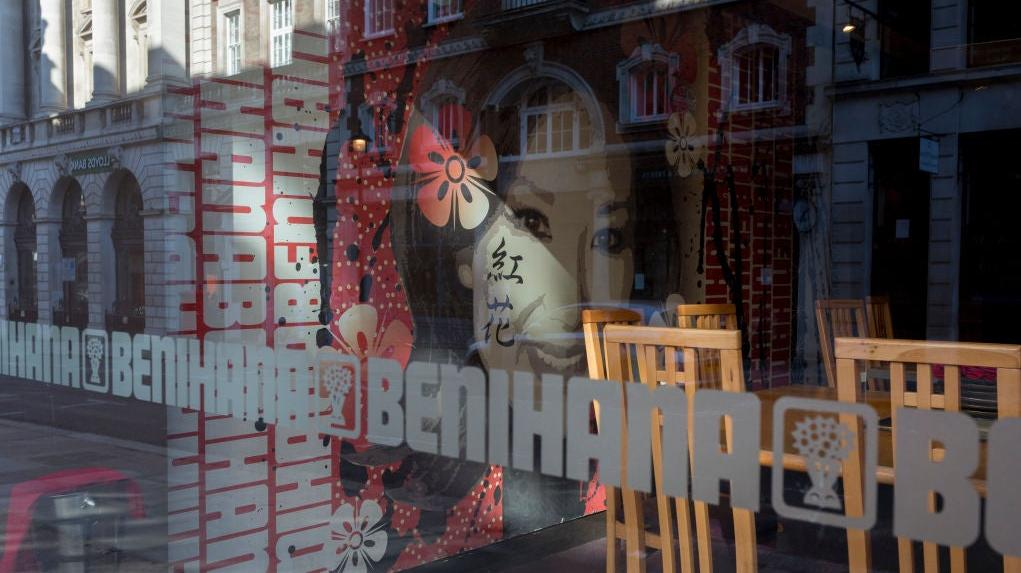Can Benihana Bounce Back?
The Japanese restaurant chain has a unique hiring problem: finding chefs trained in entertainment.
You probably all know by now that COVID-19 shutdowns and reopenings have affected restaurant staffing in a big, complicated way, and it's becoming clear that the labor issues within the industry aren't likely to subside even once the pandemic itself does. There are plenty of reasons that restaurants are understaffed right now: health concerns, unsafe conditions, insufficient wages, lower tips, nightmare customers, and more. Even those who choose to return to restaurant work after being laid off (either front or back of house) might find that their skill set, like an underutilized muscle, has atrophied. This is certainly what staff writer Dennis Lee found when he took a recent shift at his old restaurant job after months away from the line: "Wow, did my body feel rusty," he writes. "When you cook for years, your body is plenty used to moving around on your feet for hours, doing manual labor, and being around the ambient heat of an oven... I realized I'd completely lost what I call my 'kitchen fingers,' aka, my tolerance to picking up very hot metal pizza trays. I never thought I'd miss that."
And that's just how it feels returning to the task of making pizzas, which, while incredibly artful, is rather straightforward. What is it like returning to a different variety of restaurant work—like, say, the cooks/entertainers at Benihana, who must juggle eggs, create onion volcanoes, and catch shrimp tails in their hats?
SFGATE took a look this week at how the hiring crisis is only compounded (or at least more obvious) at Benihana, a place where the skill of the chefs is tied to their ability to entertain with food. Writer Grant Marek recently visited San Francisco's only Benihana and noted that there were only three chefs spread between six full tables; indeed, his own party's chef was late in arriving, because he "needed a breather in between tables." The server had previously been in retirement after a long stint at Benihana, but the restaurant recently begged her to return when it couldn't find anyone to work the dining room. Some of the chefs at the Japantown location in San Francisco, Marek notes, were bouncing back and forth on alternating nights to work at the Burlingame location approximately 20 miles away, where finding trained chefs is also a struggle.
Marek looked at the Benihani jobs page, which it is overflowing with available positions, each attempting to lure applicants with hiring bonuses. And that's not just true for the chef roles—a hostess position comes with a $250 signing bonus. With a stringent training process that can take up to six months (according to The Daily Meal), is it even possible to keep Benihana open if the restaurant chain doesn't start building a deeper bench of workers? Will the Benihanas and Cheesecake Factories of the world be forced to permanently alter their footprint and offerings—and if so, is this ultimately a good thing for the workers tasked with running these massive ships? Time will tell, but in the meantime, if you head to Benihana and you have to wait a while before the evening's entertainment begins, have some patience.
